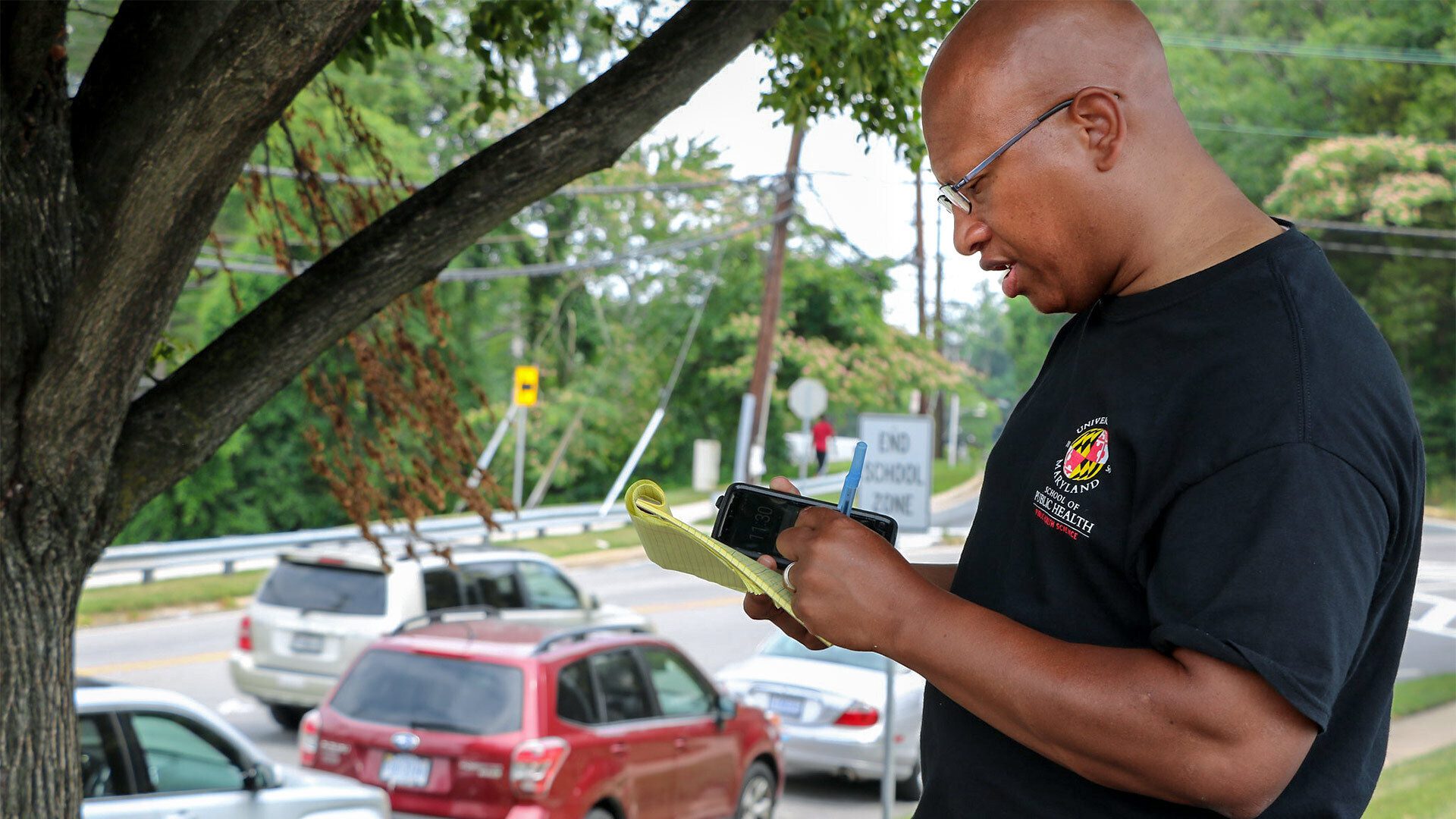- January 26, 2022
- By Kelly Blake
A $1.75 million gift from Meta (formerly Facebook) to the Center for Community Engagement, Environmental Justice and Health (CEEJH) in the University of Maryland’s School of Public Health will significantly bolster the group’s ability to advance environmental justice across the United States.
The gift will support new and ongoing activities led by CEEJH, including a new paid internship program, new staff hires and the annual University of Maryland Symposium on Environmental Justice (EJ) and Health Disparities, a multiday event for community organizers, policymakers and environmental health experts using innovative policy, legal and public health tools to address pressing EJ issues and help communities to advocate for themselves.
Led by Associate Professor Sacoby Wilson, CEEJH conducts research and leads efforts to elevate, engage and advocate for communities experiencing health inequities and toxic exposures stemming from a history of environmental racism. “Our regulatory scheme has not protected every American when it comes to environmental hazards,” Wilson said. “Take for example the recent coal dust explosion in Baltimore’s Curtis Bay. That explosion shook homes and blew out people’s windows. It is shocking that we have industry right beside a community!”
Brent Harris, Meta vice president of governance, said the company is honored to partner with UMD in expanding support for environmental justice communities.
“While this is early in our journey, the partnership will help us learn more about the ways technology can empower environmental justice leaders and support underserved communities facing these impacts around the world,” Harris said.
Wilson and his team of researchers, trainers and community organizer/advocates have been successfully engaging communities throughout the United States who are impacted by often-shocking exposures to toxic waste and industrial facilities, garbage dumps and other sources of pollution that lower quality of life and may lead to cancers, respiratory problems and other chronic health problems. As climate change exacerbates existing threats to health and creates new ones, many of these communities are on the “frontline”—meaning that they experience the first and worst impacts of climate change.
“The current [Biden] administration has elevated environmental justice, and this is an opportunity to make visible a lot of populations that we think have been ignored,” Wilson said. “But we need more people at the table, we need more people in the social movement, and we need to have industry and technology companies as part of the solution. This gift from Meta is going to help us with engaging communities on the frontline and fenceline who are dealing with environmental justice and climate issues.”
Interested students can apply now for the new Environmental Justice Summer Scholars program, which will launch in June 2022 (application deadline: March 31). The first paid internship opportunity available with CEEJH, the EJ Summer Scholars program is available to up to 20 undergraduate students based in the mid-Atlantic region who are passionate about environmental and climate justice.
Over 10 weeks, students will be paid $5,000 and gain skills in research, science communication, community science, capacity building and their own career planning. Workshops and training will be provided virtually, with some fieldwork experiences offered in person. Depending on skills and interests, students may help with deploying air quality sensors in partner communities, data analysis and visualization, development of educational and outreach materials, refinement of EJ mapping tools and other support for ongoing research.
“We are excited to build a more robust training program and to make sure that we are doing science that serves the people,” Wilson said, “and to be able to provide community groups with more technical assistance.”
Wilson will also hire an operations manager and community engagement specialist to join the growing CEEJH team that already includes those with backgrounds in environmental health, urban planning, geographic information systems, community organizing, data science and public policy.
The funds will also help CEEJH focus more on positive uses of technology at the annual Environmental Justice and Health Disparities Symposium. Wilson has been eager to engage “green tech” and “clean tech” corporations to develop environmental and climate solutions, as well as applying social, data, health and information technology to the EJ movement’s goals.
The gift from Meta comes at a critical time for environmental justice struggles and in the CEEJH’s history. While the federal government’s support for environmental and climate justice has raised its visibility, many challenges remain.
“With the threats to voting rights, civil rights and our democracy that we are witnessing, there is the potential of more pollution, more environmental injustice, more environmental health disparities,” Wilson said. “We need more people to step up. What affects people who have been invisible affects us all.”
Topics
ResearchUnits
School of Public Health